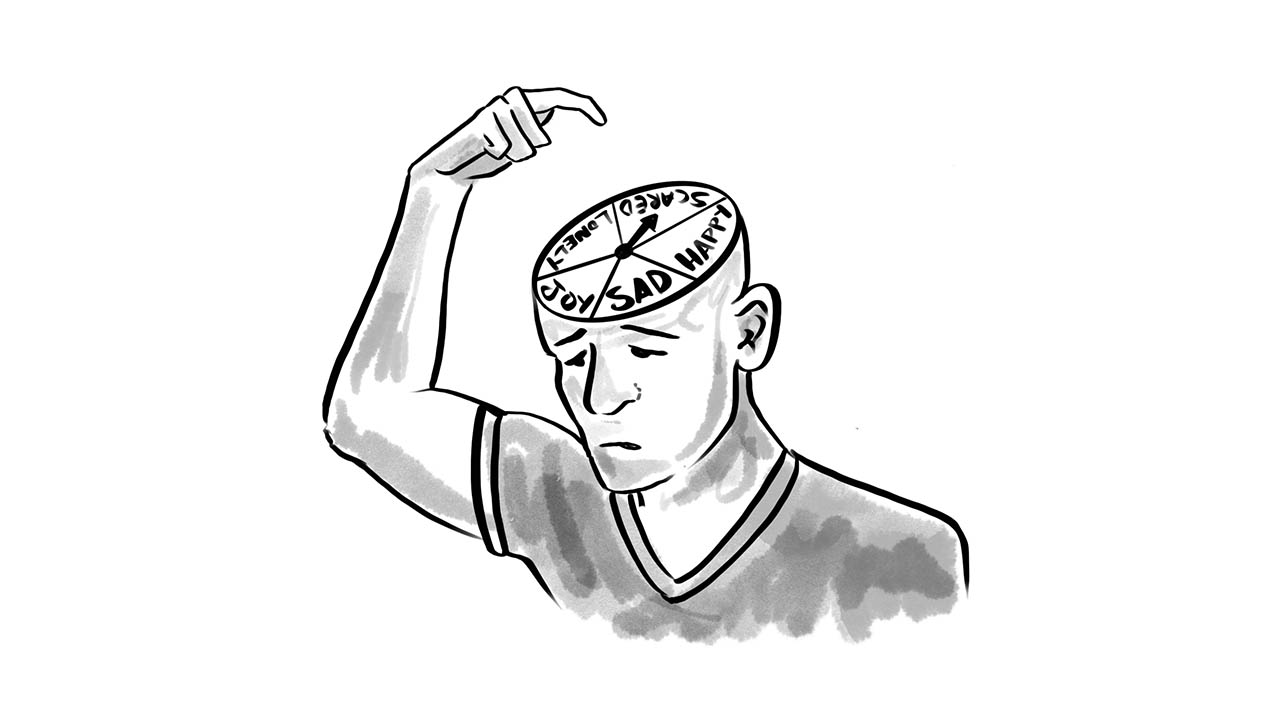Emotional burnout: resistance is futile
 CREDIT: LANCE DAGENAIS
CREDIT: LANCE DAGENAISMany of us were on the brink of burnout even before the pandemic. Go easy on yourself.
I’m writing this article on the night of the first 2020 Biden-Trump Presidential Debate.
I’ve never watched a presidential debate live, before now. Admittedly, I did not pay close attention to U.S. politics until 2016, when shit got real — and continued to get more and more real over the past four years. And now, with everything coming to a head, I know I’m not alone in saying: I am emotionally burnt out.
Even before COVID-19 hit, post-secondary students and recent graduates like me were on the brink of burnout. Unfortunately, the constantly moving target of personal and professional societal standards led us to believe that claiming as such was a sign of weakness or defeat. If we couldn’t meet these standards, we had no one to blame but ourselves and our poorly budgeted love of avocado toast, or so the mythology went.
So, when BuzzFeed News Reporter Anne Helen Peterson called a spade a spade in her 2019 article, “How Millennials Became the Burnout Generation,” we let out a collective sigh of relief. We had been seen. Perhaps, with Peterson’s acknowledgement of the insane pressure we were under to work multiple jobs and pay off absorbent student loans while still leading mentally healthy lives, we could finally drop the façade that everything was OK when indeed, it was not. Something had to give.
And then, come March 2020, something did give. But not in the way we hoped.
Suddenly, our world expanded beyond keeping up appearances on Linkedin. Of course, the world at large has always been there, but after COVID-19 we were forced to look up from our algorithmically personalized feeds and confront the reality we’d been programmed to avoid without even realizing; the reality that life is inevitably and uncontrollably followed by death.
It’s been almost seven months of adjusting our mindsets to a global pandemic, all while trying to go on with our lives (because what other choice do we have?). Come October, our student loans will continue to accumulate interest, and thanks to an even less stable economy, our career plans continue to hang in the balance. How, we wonder, will we come out clean on the other end of this long, dark tunnel?
This article isn’t instructional. It isn’t a clever, well-researched listicle, and its motive isn’t exactly to preach. The aim of this piece is to pinpoint a generational feeling of hopelessness and despondency and share what I’ve come to believe is the only ultimate solution to everything.
Accept it. Accept you are burnt out. You have a right to be. Anyone in this situation would be. Accept that the world is chaos and there’s nothing you can do about it. Accept that these times are unprecedented and there’s no playbook for starting out your adult life during a pandemic.
Accept the unknown and accept your feelings towards it.
All we can do is handle reality one day at a time, just as our ancestors did during many a crisis before us. All we can do is our best concerted effort to get enough sleep; do our work; eat right; get fresh air; express love and compassion; seek counselling, and whatever else we need that will make us feel even the slightest bit better and healthier in the moment. But denying the difficulty of this experience will only weigh you down even further, so I heartily recommend giving in and letting go of any impulse to ignore your own emotions.
Forgive yourself for feeling burnt out and trash the olden myth of weakness and defeat. Like the rest of us, you’re merely a human being, having a human experience. We have a ways to go yet, but eventually, we will pull through. One day at a time.
















